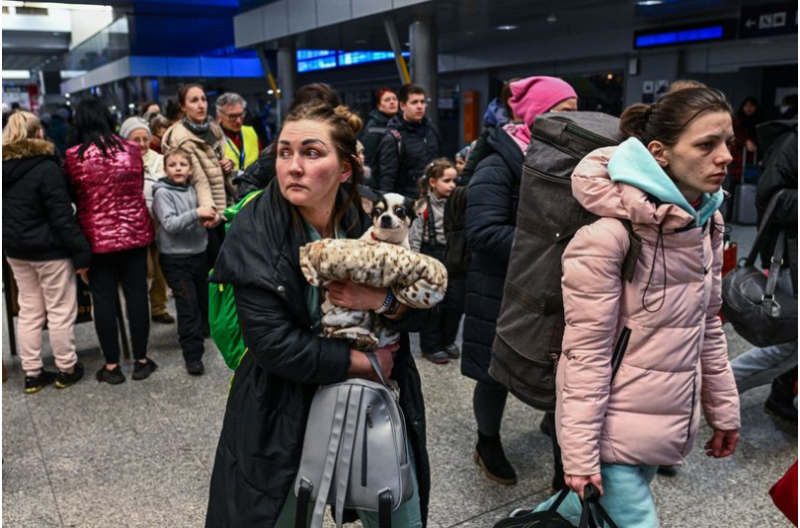
UK: According to an earlier survey by the Office for National Statistics (ONS), less than 25% of Britons who shelter Ukrainian arrivals under the government's "Home for Ukraine" refugee scheme have been staying for more than a year. Agreed to continue housing till Refugee Minister Lord Richard Harrington told The Telegraph that UK families hosting Ukrainian refugees should double their "thank you" payments.
According to the minister in charge of the "House for Ukraine" project, thousands of families are expected to opt out of the scheme as the rising cost of living reduces their household budget.
The refugee minister is concerned that a quarter of the 25,000 families currently hosting Ukrainian refugees will leave the program after six months.
The 'cost' of hosting refugees is rising
Ever since Moscow began its operations on 24 February, an influx of Ukrainian refugees has been pouring in to EU countries and the United Kingdom.
Many are not necessarily fleeing areas of immediate military operations, but they are hoping to take advantage of the opportunity to start a new life elsewhere. In addition, the Ukrainian government called on all men between the ages of 18 and 60 for military service and barred them from leaving the country. Some have resorted to cross-dressing to avoid the draft.
The UK government launched the "Home for Ukraine" project in mid-March to assist Ukrainian refugees in finding free temporary housing.
Each expatriate-hosted household that agrees to a six-month commitment is entitled to a monthly payment of £350 ($428.7). During the first three months, the UK government spent £300 million on providing services for refugees and funding local governments for "thank you" payments.
Families who initially signed up for the project were sent letters asking if they would be able to continue after six months, but about 25% said no, according to the outlet. Some families have warned they will not be able to house Ukrainians because of crippling energy bills, which are expected to rise by 80% this winter, skyrocketing inflation, and rising interest rates.
The coworker is "optimistic" that the Treasury will approve his request to double the payment.
According to Lord Harrington the "thank you" payment is "a very important contributor to household expenses - electricity bill, gas bill".
The Treasury is also lobbying for more money for English language lessons for refugees. As predicted, if more families drop the scheme, it will help refugees find work and access the rental market.
According to a Treasury source, "there is an institutional reluctance to commit to public spending outside of fiscal events."
squeezed budget
The wrangling with the Treasury comes as the cost of living crisis is increasingly impacting the UK household budget.
On 22 August, wholesale gas prices in Europe reached an all-time high. Next month's gas price at the Dutch TTF hub, which serves as a European benchmark for natural gas trading, rose 19% to 291.5 euros ($291.9) per megawatt.
In the United Kingdom, inflation hit a 40-year high of 10.1% in July, up from 9.4% in June. Citigroup economists predict it will hit a 50-year high of 18 percent next January, triggered by rising energy costs.
In addition, the new energy price cap will be raised by regulator Offgame in October, with an estimated increase of £1,971 to approximately £3,600 per year. The average household energy bill is expected to exceed £4,000 per year.
Europe as a whole has been suffering from high electricity costs, exacerbated by low natural gas flows from Russia.
Food price inflation has been fueled by rising oil prices and thus fuel prices. The procedures largely stemmed from Western governments, including the United Kingdom, to impose self-harm sanctions on Russia in response to a special military operation in Ukraine.
Russia accuses Ukraine of car blast that killed Putin ally’s daughter
EU mulls military training for Ukrainian soldiers, say Borrell
Guterres appoints fact-finding mission members for Donetsk prison attack